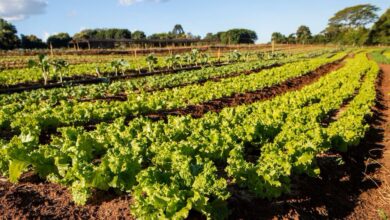Lesotho’s Most Successful Farmers

Nestled within the vast landscape of Southern Africa, Lesotho, often referred to as the “Kingdom in the Sky,” is predominantly known for its rugged mountainous terrain and dramatic vistas. However, amid these towering highlands and scenic beauty, a quieter revolution is taking place in the realm of agriculture. Despite numerous challenges, including unpredictable weather patterns and limited arable land, a group of pioneering farmers in Lesotho has achieved remarkable success, showcasing resilience, innovation, and a deep connection to their land.
The Agricultural Landscape of Lesotho
Agriculture in Lesotho is characterized by small-scale farming, with the majority of farmers practicing subsistence agriculture. The country’s agricultural sector faces significant challenges, such as soil erosion, limited irrigation, and erratic rainfall. Yet, amidst these hurdles, some farmers have managed to not only sustain their livelihoods but also thrive, becoming beacons of hope and inspiration for others.
Leading Figures in Lesotho’s Agricultural Success
- ‘Maseru’s Miracle’: Khotso Mokhele Khotso Mokhele, a farmer from the outskirts of Maseru, the capital city, is widely regarded as one of Lesotho’s most successful agricultural entrepreneurs. Mokhele’s farm, spanning over 50 hectares, is a model of integrated farming. He combines traditional crop farming with modern techniques, cultivating maize, sorghum, and vegetables alongside poultry and livestock. His innovative use of drip irrigation systems and organic farming methods has not only improved yields but also ensured sustainability. Mokhele’s success has earned him numerous awards and recognition, including the prestigious Lesotho Farmer of the Year award.
- The Agro-Entrepreneur: ‘Maseeiso Motloung ‘Maseeiso Motloung, a dynamic young farmer from Leribe district, represents the new wave of agro-entrepreneurs in Lesotho. Specializing in high-value crops like mushrooms, strawberries, and herbs, Motloung has tapped into niche markets both locally and internationally. Her adoption of greenhouse farming and hydroponics has allowed her to maximize production on limited land. Motloung’s enterprise has not only created employment opportunities in her community but also provided training and mentorship to aspiring young farmers, promoting agricultural innovation and entrepreneurship.
- The Livestock Maestro: Thabiso Letsie In the highlands of Thaba-Tseka, Thabiso Letsie stands out as a leading figure in livestock farming. Letsie’s farm, primarily focused on sheep and cattle, is renowned for its high-quality wool and meat products. By implementing rotational grazing and advanced breeding techniques, he has significantly improved the health and productivity of his livestock. Letsie’s commitment to sustainable practices and his role in cooperative farming initiatives have made him a respected leader in the agricultural community. His success story is a testament to the potential of livestock farming in Lesotho’s highlands.
Innovative Practices and Sustainable Agriculture
What sets these successful farmers apart is their commitment to innovation and sustainability. They have embraced modern agricultural techniques, such as:
- Drip Irrigation: Efficient water usage is critical in a region prone to droughts. Farmers like Mokhele have implemented drip irrigation systems, ensuring that crops receive precise amounts of water, reducing waste and improving yields.
- Organic Farming: Avoiding chemical fertilizers and pesticides, these farmers have turned to organic farming methods, which enhance soil fertility and reduce environmental impact.
- Greenhouse Farming: By cultivating crops in controlled environments, farmers like Motloung can grow high-value crops year-round, protecting them from harsh weather conditions and pests.
- Rotational Grazing: Letsie’s adoption of rotational grazing techniques has helped in maintaining healthy pastures and improving livestock productivity.
The Role of Government and NGOs
The success of these farmers has been bolstered by support from government initiatives and non-governmental organizations (NGOs). Programs aimed at providing access to credit, modern farming equipment, and training have played a crucial role in transforming the agricultural landscape. Moreover, initiatives such as the Lesotho Agricultural Development Project (LADP) and partnerships with international organizations have facilitated knowledge transfer and technical assistance.
Inspiring the Next Generation
These pioneering farmers are not only enhancing food security and economic stability in Lesotho but are also inspiring the next generation of farmers. Their stories of success and resilience serve as powerful examples of what can be achieved through innovation, dedication, and sustainable practices. By mentoring young farmers and advocating for agricultural education, they are ensuring that the future of farming in Lesotho remains bright.
Lesotho’s most successful farmers are more than just agricultural producers; they are innovators, educators, and community leaders. Through their ingenuity and perseverance, they have overcome formidable challenges and set new benchmarks for success in a sector crucial to the country’s well-being. Their achievements underscore the potential of sustainable agriculture to transform lives and landscapes, offering a blueprint for rural development and resilience in the face of climate change.
Join 'Lesotho News' WhatsApp Channel
Get breaking Lesotho news — delivered directly to your WhatsApp.
CLICK HERE TO JOIN



